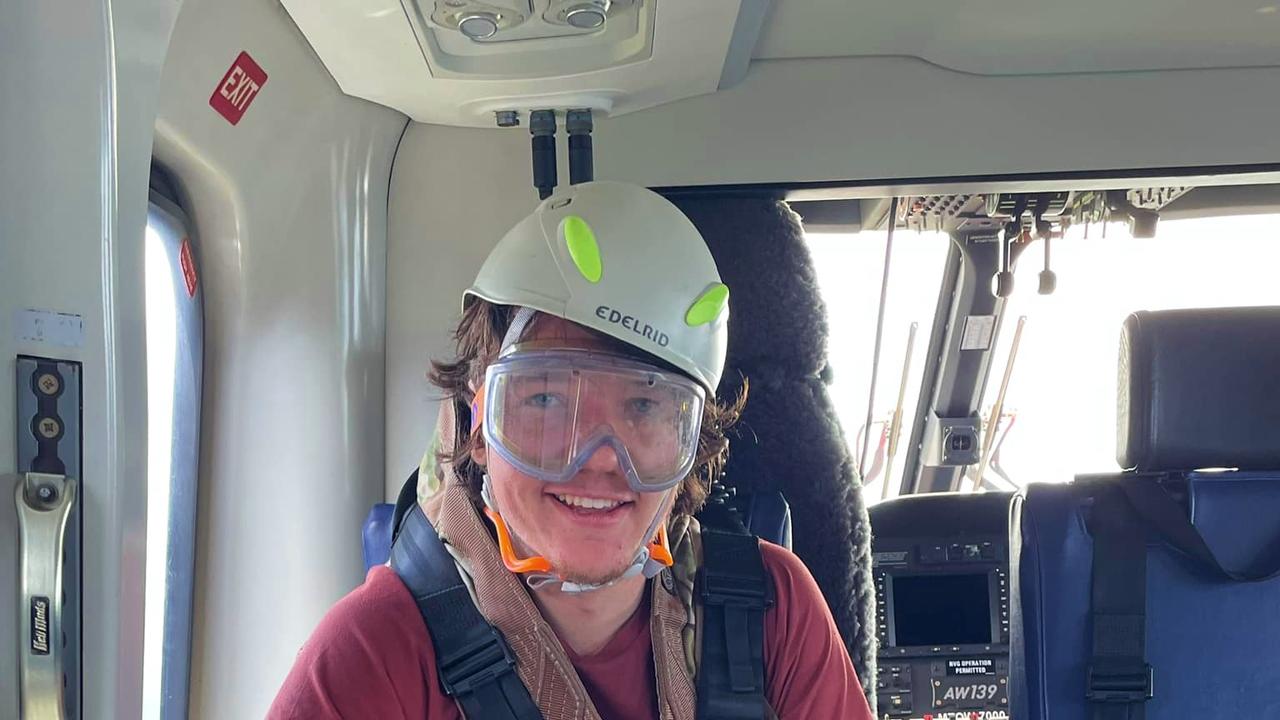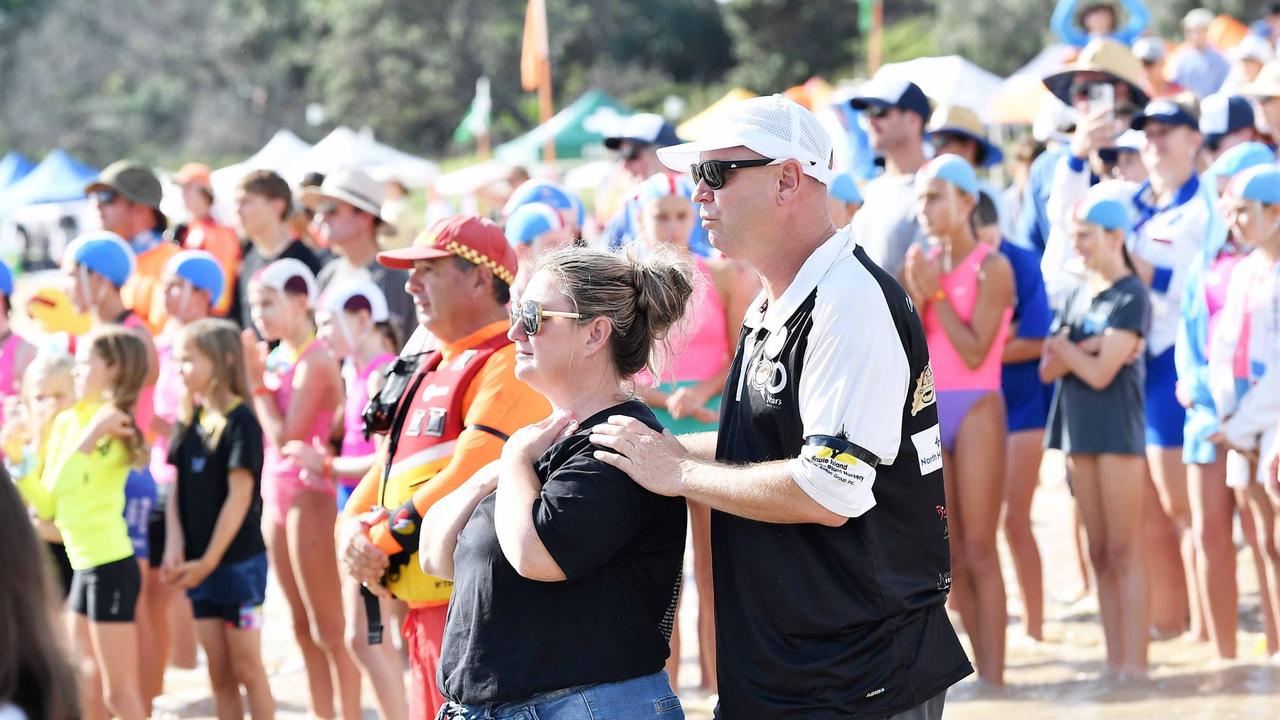The Courier-Mail: 170th birthday celebrations
THEY’RE the movers and shakers who’ve changed the face of Queensland. As The Courier-Mail celebrates its 170th anniversary, we examine the “builders” - the people who shaped our state.
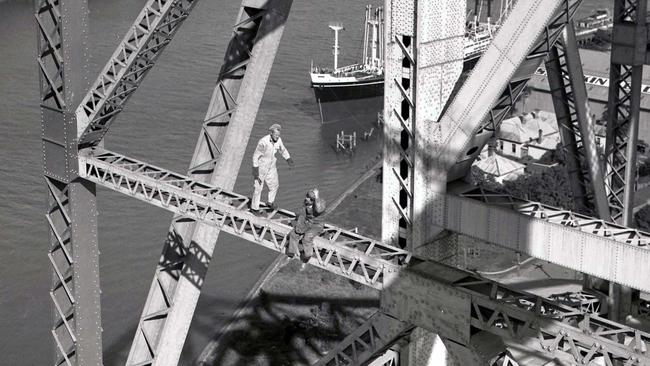
QLD News
Don't miss out on the headlines from QLD News. Followed categories will be added to My News.
THEY’RE the movers and shakers who’ve changed the face of Queensland. As The Courier-Mail celebrates its 170th anniversary, we examine the “builders” - the people who shaped our state.
Andrew Fisher
The son of a Scottish coal miner, Fisher was a union official and miner before migrating to Queensland in 1885 where he became an integral part of the union movement in the early 1890s and the founding of the Labor Party. He represented Gympie in the Legislative Assembly from 1893 and was committed to improving living standards of the labourer, introducing the first workmen’s compensation bill in 1899 and 1900 and argued for the place of women in the Australian Parliament in 1908. He was Prime Minister on three occasions - 1908-1909; 1910-1913 and 1914-1915 and was a member of Australia’s first Parliament.
William Forgan Smith
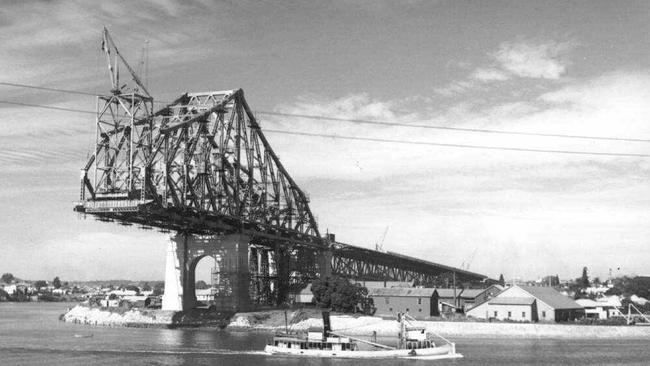
Forgan Smith’s impact can be seen in the Brisbane skyline every day. During the Depression, he used consolidated revenue and loans to finance public works like the Story Bridge, as well as the Somerset Dam, the Hornibrook Highway and moving the University of Queensland to St Lucia to create jobs. A Scot who migrated to Queensland to improve his chronic bronchial condition, Forgan Smith served as premier from 1932 to 1942, and was a supporter of UQ, serving as chancellor and with a building named after him. He died in 1953 of a heart condition brought on by throat cancer.
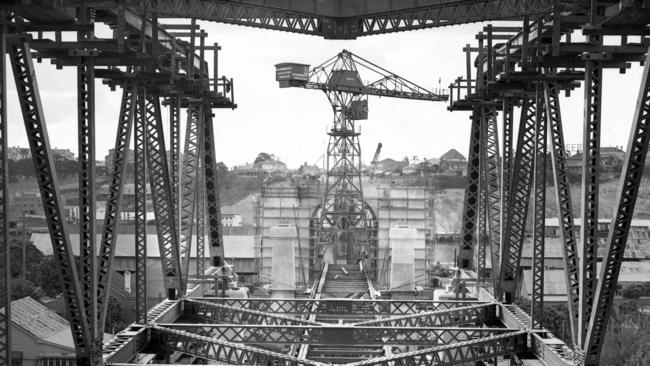
Sir Leo Hielscher
With more than 50 years experience in government, banking and finance and as an independent company director, Sir Leo is recognised as one of the key figures responsible for transforming Queensland’s economy over the past 40 years. An applied economist, he has held a number of distinguished positions, with considerable experience at board level in both public and private sectors. He has also been honoured with a Knight Bachelor, a Companion in the Order of Australia, an Eisenhower Fellowship and an Honorary Doctorate from Griffith University.
Hutchinsons family
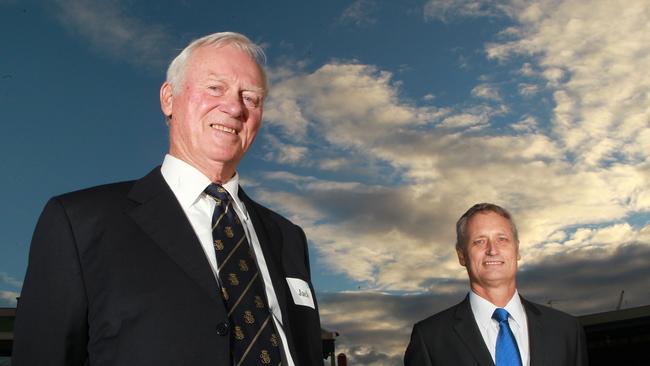
Founded in 1912 by Jack Hutchinson, the construction firm now is run by his great grandson Scott. Working across construction and mining infrastructure projects, it has worked on some of the most prestigious buildings in south east Queensland. While a private company, it publishes its accounts annually and prides itself on its transparent culture.
William Kidston
Kidston was twice Premier of Queensland (1906-07 and 1908-11) and an advocate for a separate central Queensland state. Born in Scotland, Kidston arrived in Rockhampton in 1883 and soon sided with the union movement in the 1891 shearers’ strike and later became a central figure in the Australian Labour Federation, a forerunner of the ALP, but later caused a major split in the party when it adopted socialism and formed his own centrist party. Kidston abolished dual-member electorates and introduced one vote, one value. In 1911, he became President of the Land Court and died in 1919.
Patrick Leslie
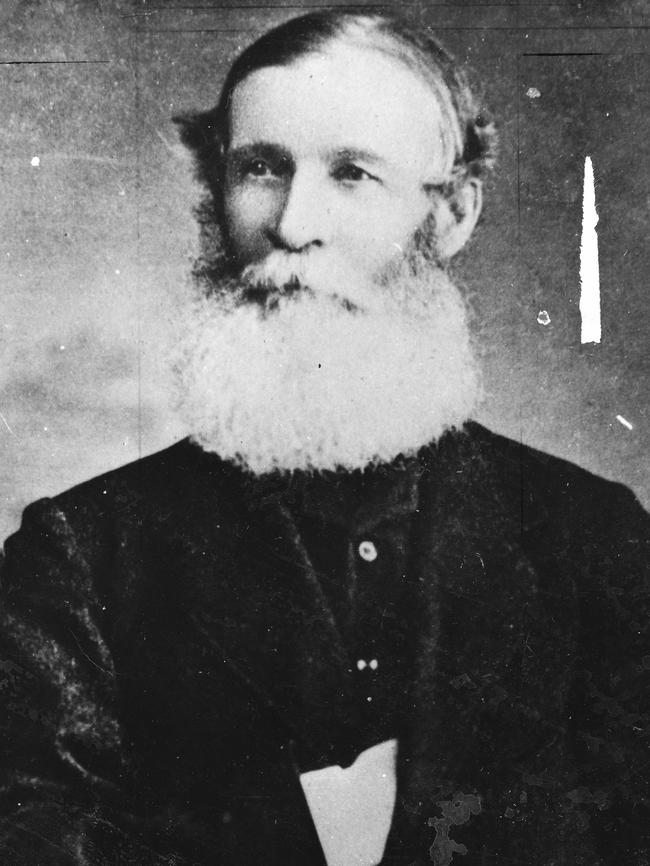
Leslie learnt about colonial agriculture from the best in the business - the Macarthurs of Camden, after he migrated from Scotland. Looking for new pasture lands, in 1840 he set off for the Darling Downs with one convict as a companion. His brother Walter followed with flocks of sheep and they became the first European settlers in Queensland at Canning Downs and Toolburra. But Patrick was a poor business manager and combined with a depression he was financially ruined in 1844. But he built Newstead House in Brisbane and bought smaller blocks of land in the Darling Downs. He was a member of the first New South Wales Legislative Asembly and actively developed stud breeding in Queensland.
O’Brien family
Ellen O’Brien stated the Defiance Flour Mill in Toowoomba in 1898 with her husband Patrick and business partner George Crisp. She was denied a bank loan as a widow following Patrick’s death but local farmers, who had been recipients of her Catholic generosity, helped her. The company under the leadership of her son Thomas, pioneered hot bread shops and in-store bakeries in supermarket chains. After four generations of family ownership, it was sold to the Bunge Group and is now owned by Allied Mills.
John and Valmae Pidgeon
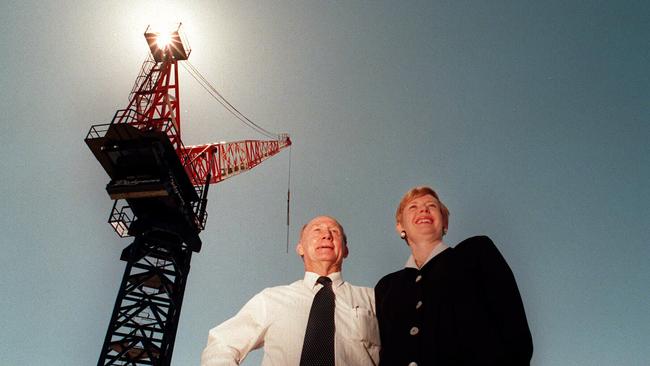
Brother and sister John and Valmae only stepped down as directors in recent years, when they reached their late 80s with Liz Pidgeon and brother Frederick now driving the family business. John died just this year. Since their father Frederick started F.A. Pidgeon & Son Pty nearly 90 years ago, the Pidgeons have developed, built, bought or managed dozens of landmark buildings in south east Queensland – from the Roma Street Transit Centre, Waterfront Place and the Bank of Queensland in Brisbane to the monorail at Broadbeach. The family also are renowned philanthropists.
Kevin Seymour
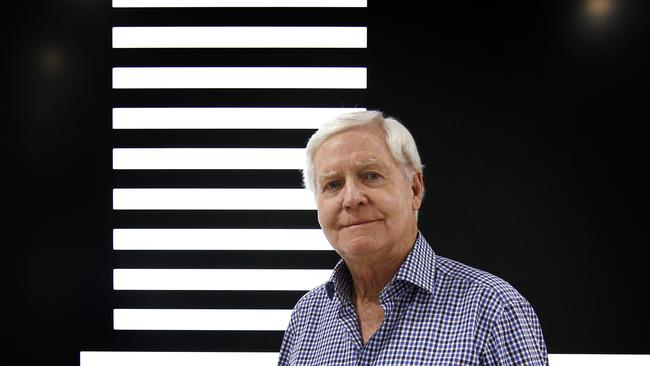
Seymour is still deputy chairman of the Seymour group, a property development and investment company founded with his wife Kaye in 1976. His early business success was in developing car parks with his father Bill and he held a substantial share in Watpac until recently. He developed Brisbane’s first CBD apartments as well as a string of other high-end developments.
Maha Sinnathamby
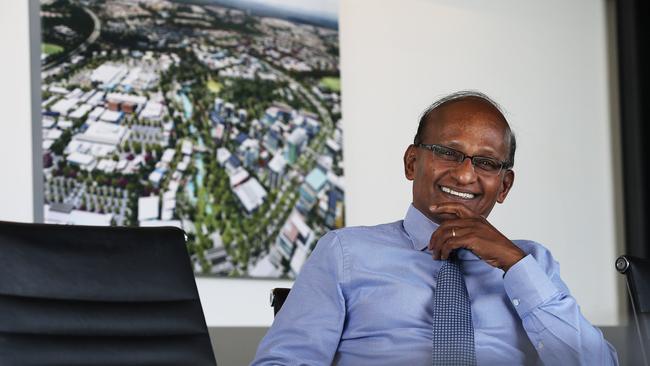
Malaysian-born Sinnathamby was eyeing sites to develop a masterplanned community when he came across a former forestry site up for sale near Ipswich. Two decades later, there are now more than 23,000 residents in Greater Springfield with health and educational facilities and a train line.
Ray White
Now in its fourth generation, Australia’s largest real estate business Ray White Group started in 1902 in Crows Nest near Toowoomba and has grown to have a turnover of more than $40 billion with an international presence. Ray White himself had an entrepreneurial spirit, looking
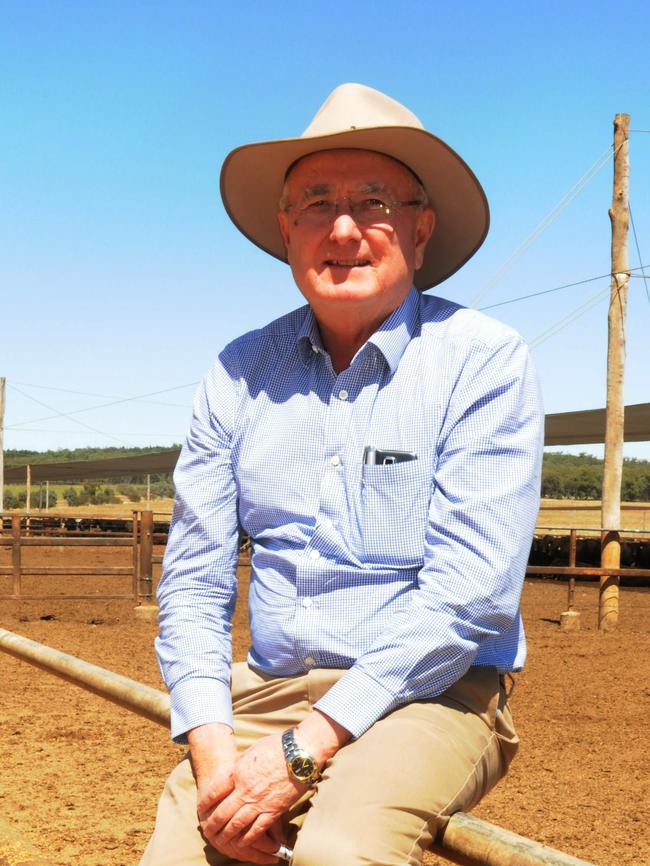
for opportunities like holding pig auctions for the farmers of the region. He also was known for his generosity to the community. On his move to Brisbane, he set up an office right in Queen Street, next to the GPO. He passed the business on to his son Alan who expanded it interstate and internationally along with his own sons Brian and Paul and members of the fourth generation.
Graeme Wood
Wood had first mover advantage when he founded Wotif, the first of the online comparison sites that now proliferate the internet. A serial philanthropist and environmental campaigner, Wood collected about $140 million when travel giant Expedia bought Wotif. He gave $372 million, the biggest political donation in Australian history, to the Greens during the 2010 federal election campaign and has financed digital media operations.
Teys Australia
The four Teys brothers started in the beef industry in 1946 with one butcher’s shop and now runs the second largest beef processor in the country. Maintaining a 50 per cent stake in the business along with multinational Cargill since 2011, members of the Teys family still remain closely involved with the day-to-day operations.
Graham Turner
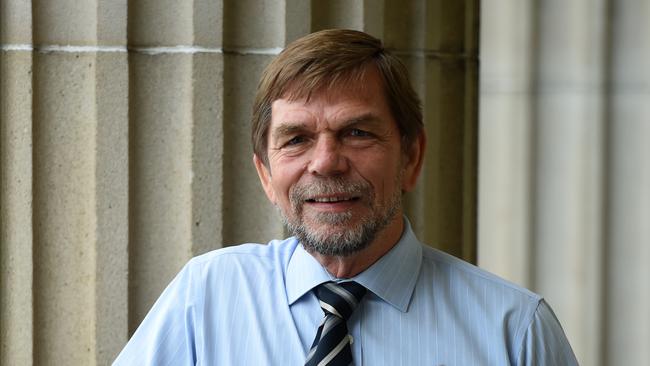
After training as a vet, Turner famously bought a couple of double-decker buses in England and started bus tours to Europe and North Africa. He returned to Australia in 1981 and set up Flight Centre, just after the airline ticketing industry was deregulated. After the company was floated, it was expanded into 11 countries. A keen bike rider, he also has expanded into hotels with the up-market Spicers brand with wife Jude.
John Van Lieshout
After a stint as a builder’s labourer and working in Turbot Street fruit markets, van Lieshout, used $2000 he and his new wife Linda had saved for a house deposit to open a furniture store in Brisbane’s southside. In 2006 he sold the Super Amart chain for $500 million. Arriving in Australia from the Netherlands as a 14-year-old with his family, unable to speak English, he is the epitome of the migrant made good and has a significant property portfolio.
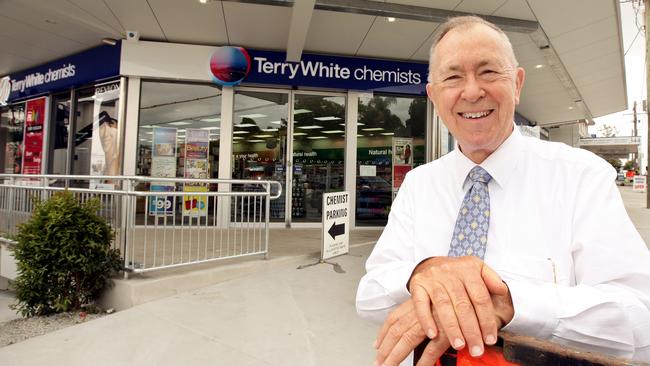
Terry White
White established the Terry White Chemist franchise with his wife Rhonda in 1994 which now turns over $1 billion. As the leader of the Liberal Party in Queensland, he notoriously severed the coalition agreement with Joh Bjelke-Petersen’s National Party in 1983 due to concerns about government spending. He held his seat until the Labor rort of 1989.
Sarina Russo
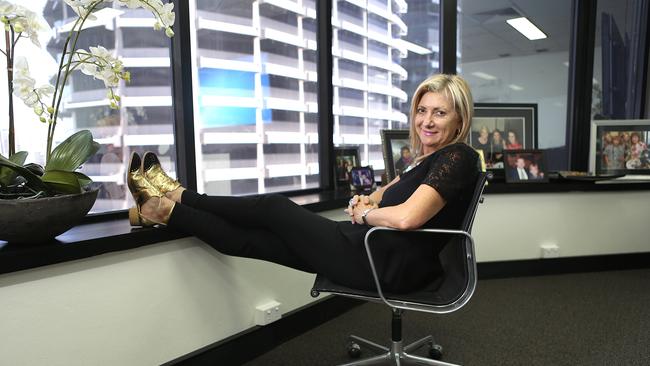
Russo was a businesswoman from the age of 10, collecting rents from tenants in apartments bought by her Sicilian migrant father. She opened her own typing school after being fired from a number of secretarial jobs and promised her students jobs at the end of their courses. Her recruitment firm employees more than 1000 people in Australia and more recently the United Kingdom. She also has built a successful property empire with a fortune estimated to be worth more than $100 million.
Keith Williams
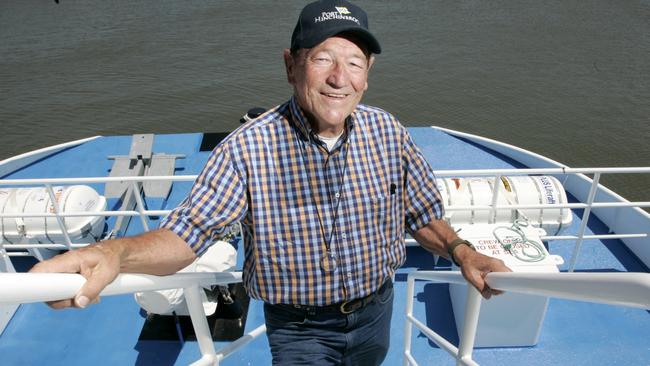
Growing up poor spurred businessman Williams to work hard, amassing a fortune estimated at $150 million by his death at 82 in 2011 after a series of strokes. He was known as one of Joh Bjelke-Petersen’s white shoe brigade of developers who supported the then Premier. He developed key tourism projects – Sea World and Hamilton Island – but it was a development at Port Hinchinbrook in north Queensland which cemented the controversial tag.
Jim Soorley
The former Catholic priest who beat the popular Sallyanne Atkinson to the top job in Brisbane City Council in 1991 is responsible for many of the modern and cultural amenities residents now take for granted. During his 13-year reign he introduced CityCats, improving the bus system and starting many infrastructure projects including the Inner City Bypass and the Eleanor Schonell Bridge connecting Dutton Park to the University of Queensland. He stepped down in 2003, handing over to Tim Quinn. He now works as a lobbyist.
Paula Stafford
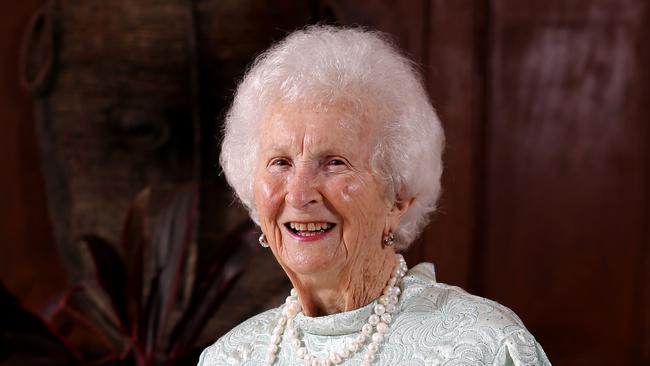
Born in 1920, Stafford started making bikinis for herself in the 1930s. As a young mother living
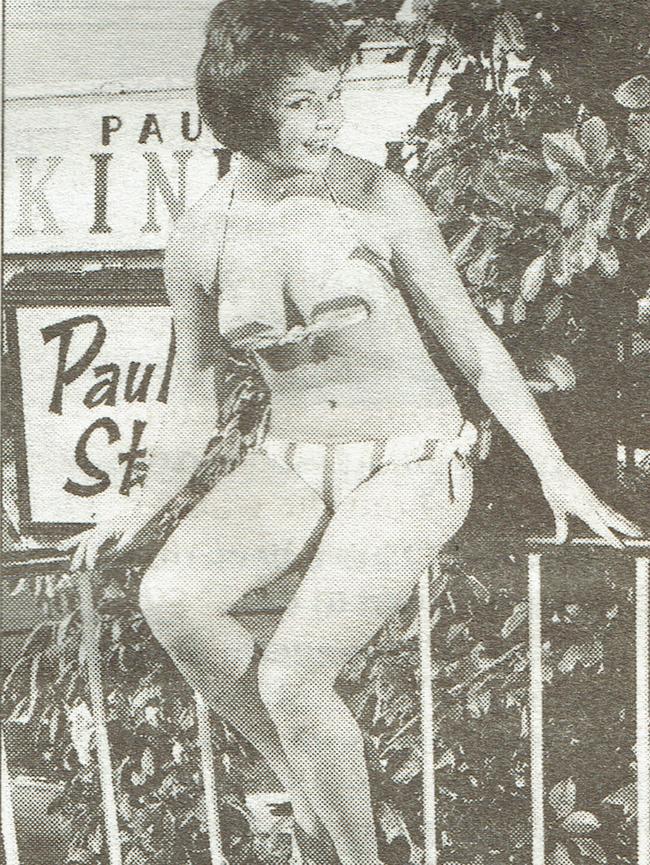
on the Gold Coast, she started receiving requests from fellow beachgoers for her designs. She had to use whatever fabric she could get her hands on, as there were still shortages from World War II. Her skimpy designs caused outrage and her bikinis were soon stocked in Melbourne and Sydney and expanded into mens and children’s wear with her clients including Sammy Davis Jnr.
Sallyanne Atkinson
As the first female Lord Mayor of Australia’s largest municipality from 1985 to 1991, Atkinson oversaw Brisbane during a time of great advancement for the city, with Expo ‘88 bringing the world’s attention to the Sunshine State. She had worked as a journalist at the Brisbane Telegraph, the Sydney Telegraph and The Courier-Mail before turning to politics. She was behind Brisbane’s bid for the 1992 Olympics and led various trade missions overseas. She served as a trade ambassador in Paris and has been the head of various corporate boards, including the collapsed ABC Learning Centres.
Peter Beattie
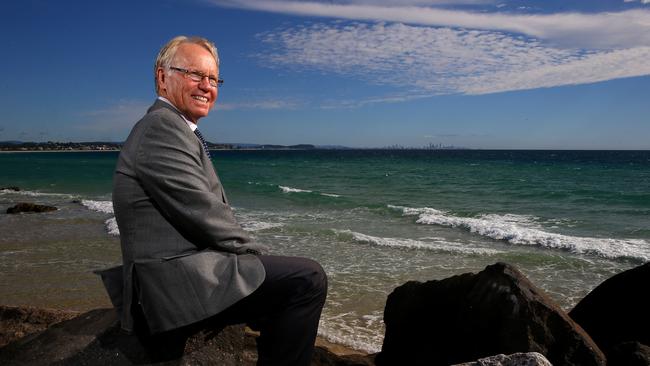
As the premier of Queensland from 1998 to 2007, Beattie put forward the Smart State initiative to encourage the development of biotechnology, information technology and aviation industries. He had the ability to turn a negative into a positive and never lost at the polls, anointing Anna Bligh as his successor. After a career as a trade commissioner, Beattie unsuccessfully ran for the federal seat of Forde in 2013. A self-confessed media tart, he is a regular commentator on Sky News and recently was appointed chairman of the Gold Coast Commonwealth Games Corporation.
Anna Bligh
Bligh’s “we are Queenslanders” speech and her steady hand during the 2010-2011 Queensland floods and Cyclone Yasi gained her many admirers for her leadership. She was Australia’s first popularly elected premier, having taken over from Peter Beattie in 2007 and then led Labor to victory two years later. She did suffer the biggest electoral defeat in Queensland history, but laid a path for female politicians. She is now chief executive of the NSW YMCA.
Quentin Bryce
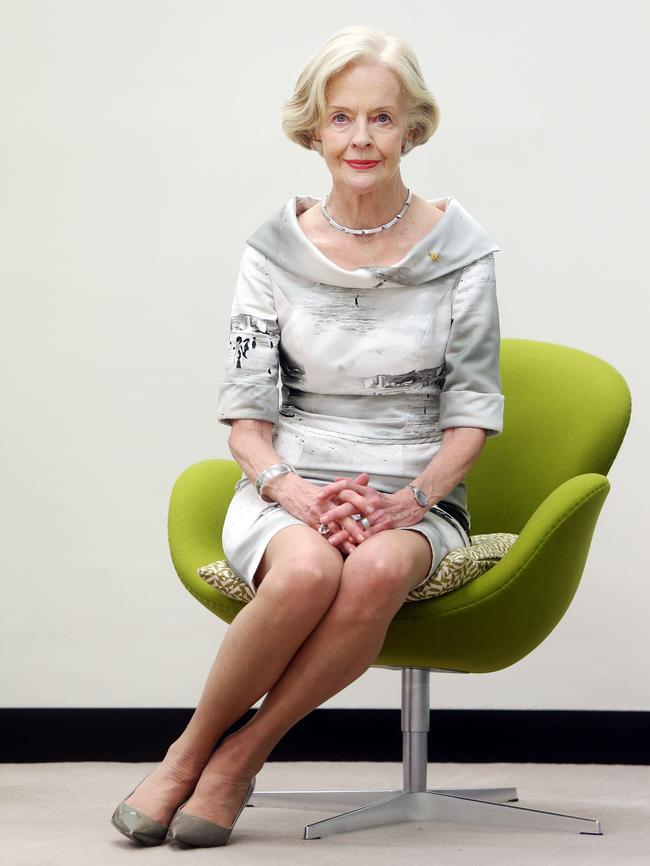
From rural beginnings in Ilfracombe, Bryce has held positions at the highest levels of human rights and equal opportunity. Australia’s first female Governor-General, Bryce has been the federal Sex Discrimination Commissioner, Human Rights and Equal Opportunity Commissioner and Governor of Quensland. Trained as a solicitor, Bryce now heads the special Taskforce on Domestic and Family Violence in Queensland and produced the landmark Not Now, Not Ever report. She is a Dame in the Order of Australia.
Campbell Brothers
Starting with a soap factory in Kangaroo Point in 1863 before moving to Bowen Hills in 1881, Campbells listed on the stock exchange in 1952 and diversified into analytical laboratory services in the early 1980s. Now known as ALS now has more than 11,000 staff and operates in more than 50 countries and currently is under a takeover bid. The current Courier-Mail building is on the site of the old soap factory on Campbell Street, Bowen Hills.
George Chapman
Building a cableway through one of the most pristine rainforests in the world didn’t daunt Chapman, who spearheaded the award-winning Skyrail through the Barron Gorge National Park in Cairns. Helicopters were used to carry equipment and workers walked to the construction sites each day to save the need for roads to be built. The Chapman group of companies have a variety of commercial interests ranging from property development and tourism to a stake in Greyhound
Steve Ackerie
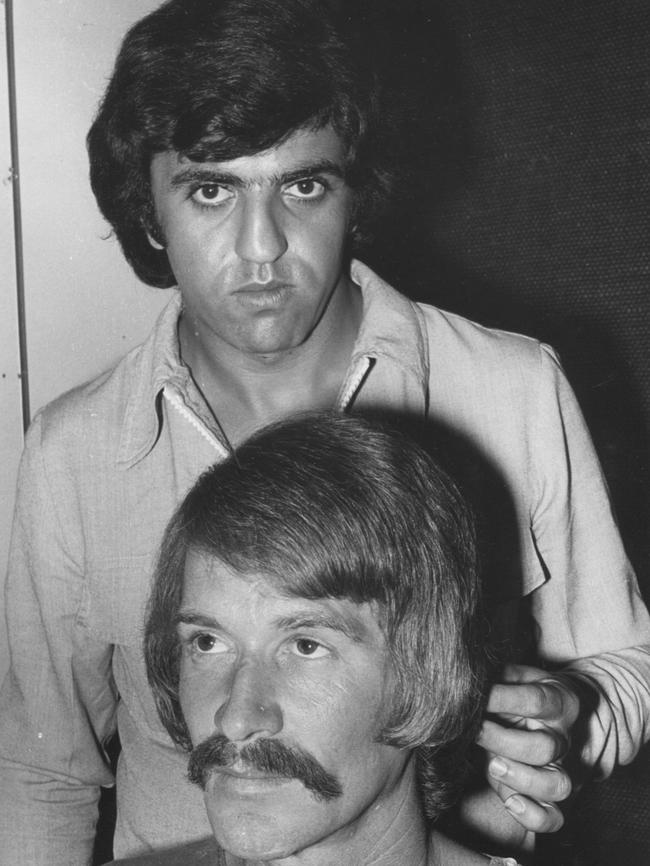
Born in Lebanon in 1941, a 15-year-old Steve Ackerie trained as a hairdresser after his family migrated to Adelaide. But his Stefan hair salon empire started in Queensland’s outback, in Longreach where he opened his first salon in 1964. He holds the record for the fastest powerboat crossing of Bass Strait and Malacca Strait in Malaysia and more recently expanded into boat manufacture. He famously bought the Sky Needle from the Expo 88 site which still provides a flash across the Brisbane night sky.
Acton family
The Actons have been on the land of more than 150 years and are Queensland’s most successful and wealthiest farming family, running more than 150,000 head of cattle. Brothers Graeme and Evan Acton undertook an aggressive expansion strategy before the untimely death of Graeme in a campdraft accident in 2014. Last year the Acton Land and Cattle Company sold 51 per cent to Trevor Lee’s Australian Country Choice.
Cyril Golding
Born with a hole in his heart in 1920, Golding’s parents were told he would only live for seven days. When he died in 2012 at 92 years old, he had built one of the largest mining and construction companies in Australia and was revered as “Mr Gladstone”. He was a supporter of the Red Cross, the Gladstone Regaional Art Gallery and Museum and many other charities.
Wayne Goss
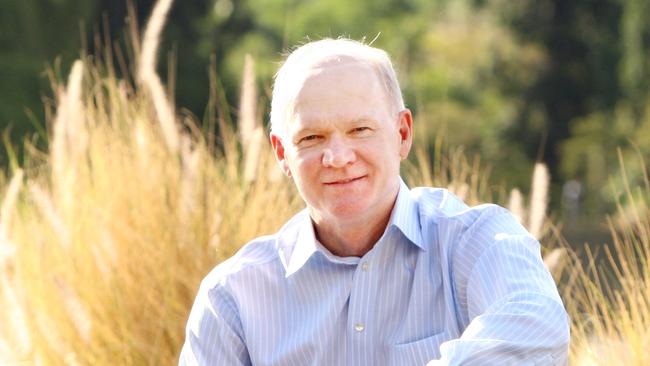
The first Labor Premier after the 32 year rule of the National Party, Goss implemented long-awaited reform from the recommendations of the Fitzgerald Inquiry and changed the cultural structure of the state by decriminalising homosexuality and trialling daylight saving. He was the first of his family to go to university and practised law including with the Aboriginal Legal Service before turning to politics. He died at 63 from a recurrence of a brain tumour.
G James Group of Companies
Australia’s leading glass and aluminium manufacturer and contractor was started by English migrant glazier George James in West End in 1913. His son-in-law Joe Saragossi took over the company on his death in 1958 and expanded into wholesale and contracting and started to manufacture aluminium joinery. The company expanded to Sydney, Melbourne as well as Malaysia and New Zealand since this time and remains one of the state’s biggest success stories.
Clem Jones
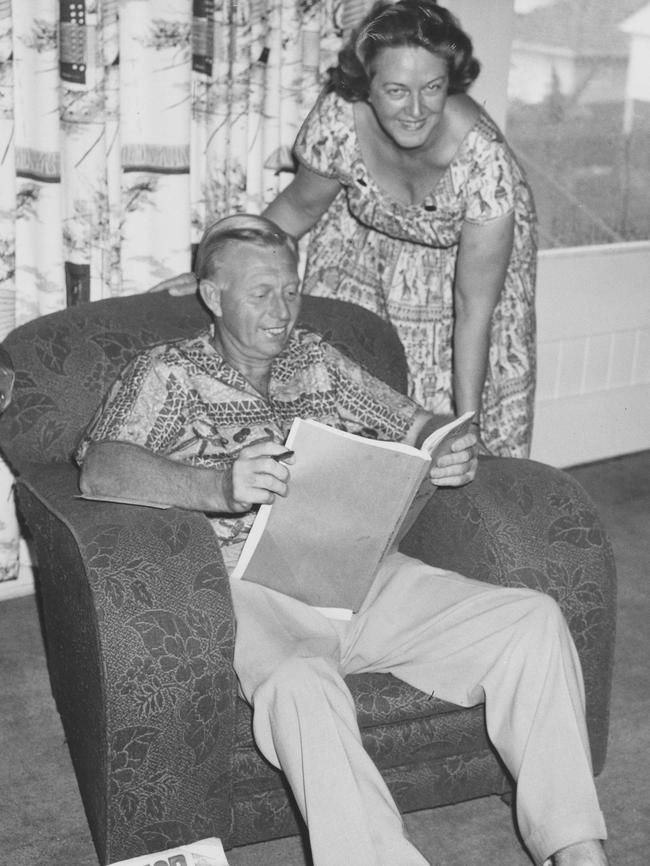
The father of modern Brisbane, Clem Jones was Lord Mayor for 14 years from 1961-1975 and was described by Gough Whitlam as “Clem the Magnificent”. While he did get rid of trams, Jones built sewers through the city which did not have a coherent town plan, sealing roads and developing gardens and sporting fields. A surveyor by trade before becoming a successful property developer, he was the only member of Australian cricket’s controlling board which voted against Australia’s tour of South Africa in 1973. He saw Brisbane through the 1974 floods and was chairman of the Darwin Reconstruction Commission after Cyclone Tracy. He was behind the successful bid for the 1982 Commonwealth Games and died in 2007.
John Longhurst
In the early 1970s, Longhurst bought 85 hectares of land at Coomera to build one of Australia’s most popular theme parks, Dreamworld. Legend has it that he personally worked on the project for two and a half years. He had made his fortune by manufacturing lawnmowers, a business he sold to Victa. An astute property investor he also invested in boat builder Riviera, run by his son.
McDonald family
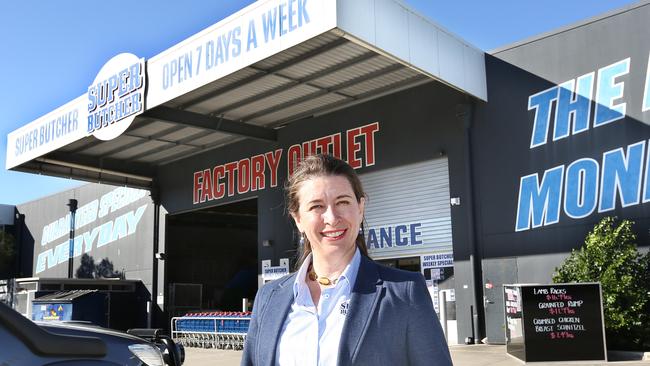
The McDonald family is Australia’s largest private landholder with 175,000 head of cattle on 11 cattle stations covering an area of 3.36 million hectares in Queensland and a major shareholder in the Super Butcher retail outlets. The original Don Mcdonald migrated from Scotland in 1827, moving to Bowen in 1862.
Kevin Rudd
Prime Minister on two separate occasions, Rudd also served as a diplomat and in the Goss Government before winning the federal seat of Griffith in 1998. His overwhelming popularity, boosted by regular TV appearances and a landslide election victory in 2007, waned after the bungled selling of the mining tax and deferring of the carbon pollution reduction scheme. His unpopularity within the party led to a successful challenge by his deputy Julia Gillard who he subsequently vanquished in the same administration. He lost the 2013 election to Tony Abbott but is remembered for his apology to the stolen generation, the withdrawal of troops from Iraq and the handling of the global financial crisis.
Honourable mentions:
Brett family (timber and hardware); Chris Wallin (miner); Jack Gleeson (TV); Woollam family (construction); Eagers family (automotive); Lee family (Australian Country Choice); Pat Mackie (unionist); Sir Llew Edwards (Expo ‘88 chairman); Cliff Fleming (Bundaberg Brewed Drinks); Laurence Lancini (property development); Bill Ludwig; Dennis Murphy; Kate Mary Smith (founder KM Smith); Edward “Red Ted” Granville Theodore; James Tyson (pastoralist); James Nash (discovered gold at Gympie in 1880s); Sir Sydney Schubert (public servant); Mike Ahern.

